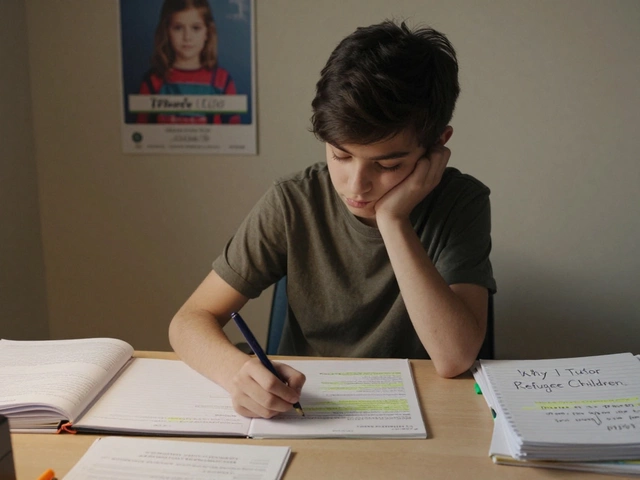GCSEs: Real‑World Tips and Resources to Boost Your Scores
If you’re staring at your GCSE timetable and wondering how to actually get through it, you’re not alone. Most students hit a wall when the workload piles up, but a few simple changes can make the whole process feel a lot smoother.
First up, plan your study time like you plan a TV show. Pick a consistent slot each day – three hours works for many, but you can start with one hour if that feels doable – and stick to it. The key isn’t the length, it’s the regularity. Break each session into 25‑minute bursts (the Pomodoro method) followed by a short break. This keeps your brain fresh and stops the dreaded "I’m stuck" feeling.
Target the Toughest GCSE Subjects First
Not every GCSE feels the same. Subjects like Triple Science, Modern Languages or Maths often need extra time because they pile up new concepts quickly. Identify the subjects that give you the biggest headache and give them priority in your schedule. For example, if you’re wrestling with chemistry equations, spend the first 30 minutes of each session on those problems before moving onto easier tasks.
Use active revision – rewrite notes in your own words, quiz yourself with flashcards, or teach a friend. Teaching forces you to simplify concepts, which makes them stick. If you have a study group, swap notes and quiz each other. Just make sure the group stays focused; a 15‑minute “question round” works better than a long, meandering chat.
Where to Find the Best GCSE Resources
The Abbey Gates School Store has a range of study guides, past papers and revision kits that line up with the current exam board specifications. Grab the latest printed revision booklets for subjects you find tricky – having a physical copy you can flip through often feels more reliable than scrolling on a screen.
Online, look for official exam board websites; they publish past papers and marking schemes for free. Pair those with a timer to simulate exam conditions. When you finish a paper, compare your answers to the mark scheme and note every mistake. Those errors become your personal study list.
Don’t forget the power of quick memory tricks. For history dates, turn them into vivid story snippets. For maths formulas, create a one‑page cheat sheet and practice it until you can picture it in your mind without looking.
Finally, keep your well‑being in check. A solid 7‑hour sleep before an exam can boost recall dramatically – no amount of late‑night cramming beats a rested brain. Eat a balanced snack before study sessions; protein and complex carbs keep energy steady.
Wrap up each week by reviewing what you’ve covered. A short “weekly wrap” – three bullet points of what you mastered, two of what still stumps you, and one action plan for the next week – keeps momentum rolling.
With a steady schedule, targeted focus on the toughest subjects, and the right mix of print and online tools, you’ll turn GCSE stress into confidence. Ready to give it a try? Grab a revision guide from Abbey Gates, set your timer, and start ticking off those goals one by one.
While GCSEs are a key educational milestone in the UK, many students aiming for higher education in the US wonder about their relevance across the pond. US universities primarily focus on a different set of academic criteria, but GCSEs can still play a significant role in shaping an applicant's profile. By understanding how these qualifications can influence admissions, students can better strategize their application approach. This article delves into the importance of GCSEs in US admissions and what UK students should consider when applying.
Read more






